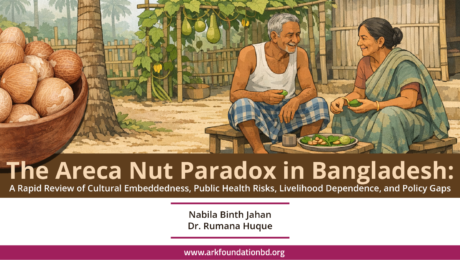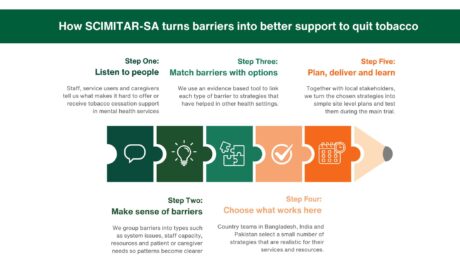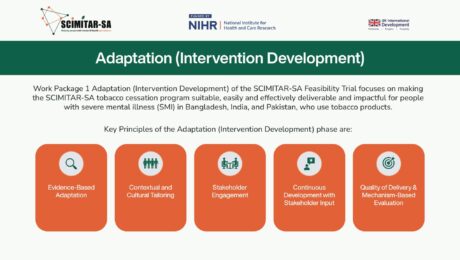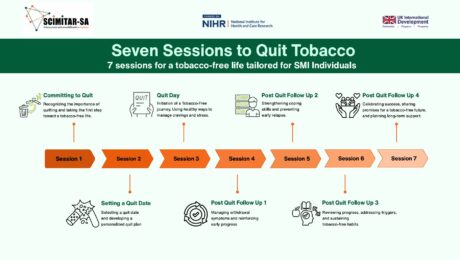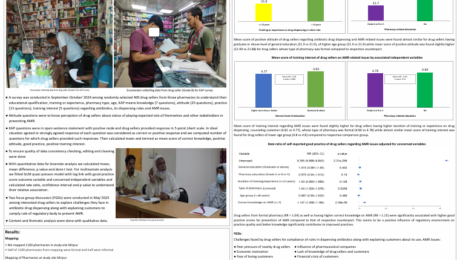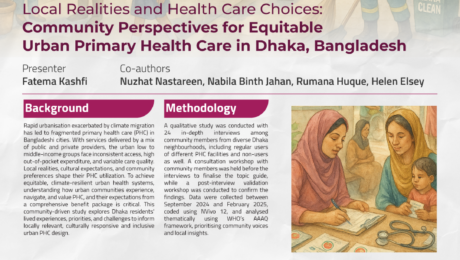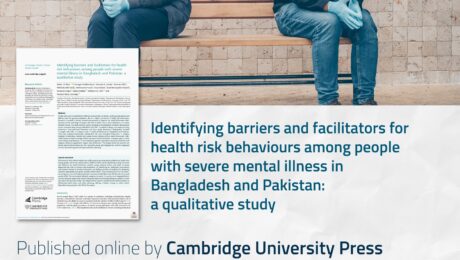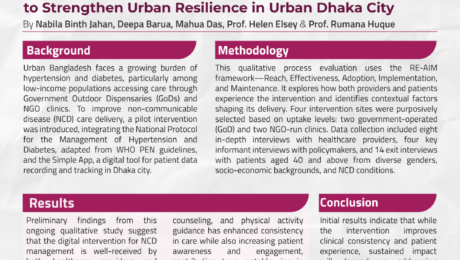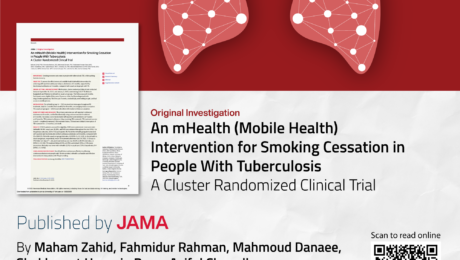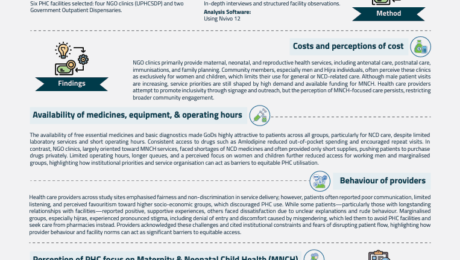Read it here or download the PDF version By Nabila Binth Jahan & Dr. Rumana Huque 1. INTRODUCTION The areca nut, also known as the betel nut, is the fruit of the Areca catechu L. palm from the Arecaceae family (Tong et al., 2024). In Bangladesh, it is known locally as Supari or Gua. This
No Comments
Find the HTML version SCIMITAR-SA is built around people and their lived experiences. By listening closely to individuals living with severe mental illness (SMI) and to the caregivers and communities who support them; we are rethinking how support for smoked and smokeless tobacco cessation can be more compassionate, practical, and effective.With recruitment now complete, we’ve
- Published in Infographics, Resources
Find the HTML version here WP1 focuses on adapting the SCIMITAR-SA intervention to meet the cultural, contextual, and delivery needs of communities across South Asia. Stakeholder participation remains central in shaping an effective and accessible model for individuals with SMI.
- Published in Infographics, Resources
Find it here A tobacco cessation intervention designed for individuals with Severe Mental Illness (SMI). The 7-session pathway supports readiness to quit, coping with cravings, personalised quit planning, relapse prevention, and continuous follow-up.
- Published in Infographics, Resources
Let’s lookback at the impactful contributions from ARK Foundation researchers at ICUH 2025, representing Bangladesh and bringing forward community-rooted insights that continue to inform inclusive and equitable urban health conversations worldwide. ARK Foundation participated in multiple segments at the International Conference on Urban Health (ICUH) 2025, Wellington, New Zealand. An abstract titled 𝐋𝐨𝐜𝐚𝐥 𝐑𝐞𝐚𝐥𝐢𝐭𝐢𝐞𝐬 𝐚𝐧𝐝
Read the full article here People with severe mental illness (SMI) are at greater risk of obesity, cardiovascular disease and diabetes than the general population, due to a higher prevalence of health risk behaviours. Research is needed to inform tailored interventions to improve the health behaviours (diet, physical activity and sleep) of people with SMI
- Published in Journal Article, Resources
Let’s lookback at the impactful contributions from ARK Foundation researchers at the International Conference on Urban Health (ICUH) 2025, representing Bangladesh and sharing insights from local urban health experiences which continue to inform inclusive and equitable urban health conversations worldwide. ARK Foundation has participated in different segments at the ICUH 2025, Wellington, New Zealand. An
Find the full article here A new research article titled ‘An mHealth (Mobile Health) Intervention for Smoking Cessation in People With Tuberculosis: A Cluster Randomized Clinical Trial’ has been published in the Journal of the American Medical Association (JAMA). The study was led by Kamran Siddiqi, Professor of Public Health at Hull York Medical School,
- Published in Journal Article, Resources

